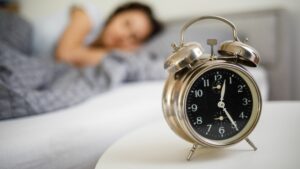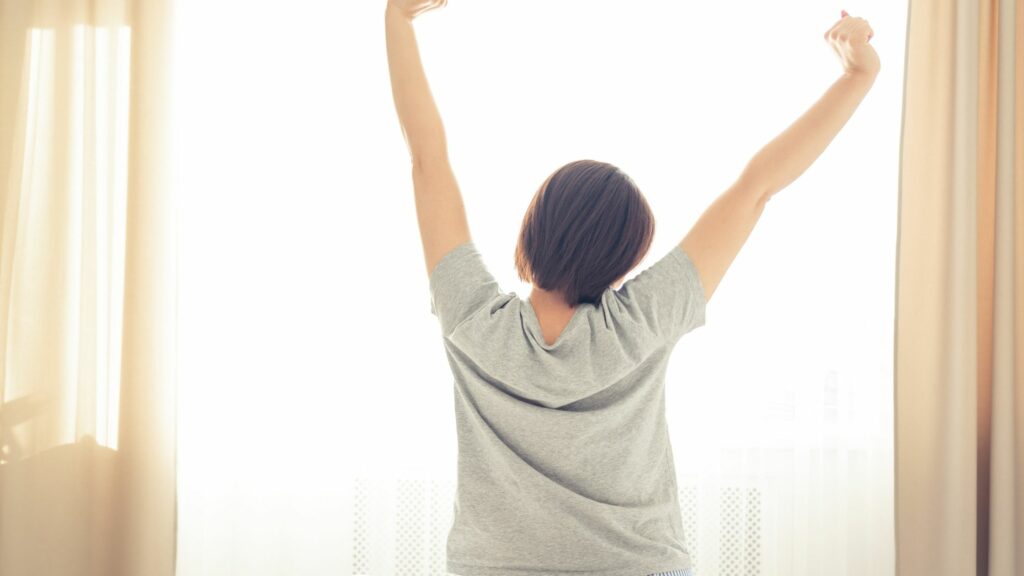Do you often wake up from a good sleep feeling refreshed and invigorated? If so, you’re among the lucky few. For most people, good sleep is elusive. According to some experts, dreaming may be one of the key factors that contribute to a good night’s sleep. In this blog post, we will explore the relationship between dreaming and good sleep. We will also discuss some of the benefits of dreaming. So, if you’re looking for an answer, that is how to get good sleep, read on!
Contents
What Does Good Sleep Mean?

There is no one answer to this question. What is considered good sleep varies from person to person. Some people need eight hours of uninterrupted sleep, while others may only need six or seven. And some people can function on just a few hours of sleep per night.
However, some general characteristics are usually considered to be indicative of better sleep. These include feeling rested and refreshed upon waking, being able to fall asleep relatively easily, and staying asleep for a reasonable amount of time. Dreams are often thought to be a sign of better sleep, as they are generally considered to be a normal and healthy part of the process.
What Are The Signs Of Good Sleep?

There are multiple signs of good sleep and some of them are here:
Feel Rested When You Wake Up
A good night’s sleep should leave you feeling refreshed and alert, not groggy. This is the most important sign of good sleep. If you didn’t feel sleepy after a whole night’s sleep, that would be a sign of poor sleep.
Your Body Feels Relaxed
When you’re in deep sleep, your body should feel relaxed. All your muscles should be slack and there shouldn’t be any tension whatsoever. You shouldn’t feel any pain in your body either.
You Fall Asleep Quickly
If you can fall asleep within 30 minutes of going to bed, that’s a sign of sleep. It means that you’re not struggling to fall asleep and that you’re getting the right amount of sleep.
You Wake Up At The Same Time Every Day
If you have a regular sleep schedule, it’s a sign that you’re getting good sleep. This is because your body is used to the routine and knows when it’s time to wake up and go to bed.
You Don’t Need An Alarm Clock To Wake Up
If you can wake up on your own without an alarm clock, it means that you’re getting enough sleep. This is because your body is used to the sleep cycle and knows when it’s time to wake up.
You Don’t Feel Tired During The Day
If you don’t feel tired during the day, it’s a sign that you’re getting sleep. This is because your body is getting the rest it needs and isn’t being deprived of sleep.
You Sleep Through The Night
If you can sleep through the night without waking up, it means that you’re getting sleep. This is because your body can get into a deep sleep and stay there for the entire night.
These are just some of the signs of good sleep. If you have problems related to sleep, then you can visit our website for a therapist consultation.
Reasons For Not Getting Good Sleep

There are multiple reasons why people can’t get good sleep and some of these are:
Too Much Noise During Night
It’s really hard to sleep when there’s a lot of noise going around you. It could be from outside or even from your housemates. Choosing a peaceful place for your bedroom can help you get better sleep at night.
Worrying About the Next Day
A lot of people have a hard time sleeping because they worry about what will happen the next day. This could be work, school, or even personal problems. Try to relax before going to bed and don’t think about anything else other than sleeping.
Eating Late at Night
Eating a big meal right before bed is never a good idea. It’s hard for your body to digest food when you’re trying to sleep and it can also lead to nightmares. Eat dinner early and try not to eat anything else after that.
Drinking Caffeine Before Bed
A lot of people like to drink coffee or tea before bed but this is a bad idea. Caffeine can make it hard for you to fall asleep and stay asleep. Try to avoid caffeine at least six hours before going to bed.
Sleeping in an Uncomfortable Position
If you’re not comfortable when you’re trying to sleep, then you’re not going to have a good night’s rest. Find a position that works for you and stick with it. Don’t try to sleep in multiple positions throughout the night.
There are many different reasons why people can’t get better. If you’re having trouble sleeping, try to figure out what the cause is and then fix it. You’ll be able to get better sleep in no time.
How Do You Know If You’re Getting Good Sleep?

Most people need between seven and eight hours of sleep a day. However, some people may need as little as five hours or as much as ten hours of sleep a day. It depends from person to person.
There are a few different ways to measure whether or not you’re getting complete sleep. One way is to track how long you sleep. Generally speaking, if you’re sleeping for seven to eight hours a night, that’s a good amount of sleep.
Another way to measure the quality of your sleep is to track how many times you wake up during the night. If you’re waking up multiple times during the night, that’s an indication.
Also for measuring sleep quality you can check how you feel when you wake up in the morning. If you feel well-rested and energetic, that’s a good sign that you’ve had a good night’s sleep.
What Are The Tips For Good Sleep?

It can be frustrating when you’re not getting sleep. You may feel tired during the day, have difficulty focusing, and find yourself irritable. There are several things you can do to improve your sleep quality. And, some of these are:
Wake Up At The Same Time Each Day
A regular sleep schedule is another key to better sleep. Waking up and going to bed at the same time each day helps to regulate your body’s natural sleep rhythm.
Sleep for Seven to Nine Hours Each Night
Most adults need seven to eight hours of sleep a night. Some people may need as much as nine hours or more of sleep regularly.
Have Regular Sleep Patterns
People who have regular sleep patterns tend to feel better than those who don’t. Having regular patterns means going to bed and waking up at about the same time each day, even on weekends and holidays.
Avoid Caffeine and Alcohol Before Bed
Caffeine and alcohol are stimulants and can keep you from falling asleep. Caffeine is found in coffee, tea, energy drinks, and some sodas. It can stay in your system for six hours or more. Alcohol may make you feel sleepy, but it can disrupt your sleep later in the night.
Get Up and Move Around During the Day
Regular physical activity can help you fall asleep at night and improve the quality of your sleep. But avoid exercising within a few hours of bedtime because it can make it harder to fall asleep.
Wind Down for 30 Minutes Before Bed
Turn off electronics screens at least 30 minutes before bedtime. The light from screens can interfere with your body’s natural sleep hormones. You may want to try reading a book or taking a bath instead.
Make Your Bedroom Comfortable
Your bedroom should be cool, dark, and quiet to help you fall asleep and stay asleep. If you can’t control the noise level outside your bedroom, try using earplugs or white noise to block out sound.
These are just a few of the things you can do to improve your sleep. If you’re still having trouble sleeping, talk to your doctor. There may be an underlying cause that needs to be treated. Better sleep is important for your overall health and well-being. So make sure you get the rest you need!
Conclusion
In conclusion, dreams are a normal and important part of sleep. They are not a sign of poor sleep, but rather a sign that you are getting the rest you need. If you are concerned about your dreams, you can reach out to us through our website. We have professional therapists who can help you to get better sleep. They can help you understand what is causing your dreams and how to deal with them. Thanks for reading!
A Word From Therapy Mantra
Your mental health — Your psychological, emotional, and social well-being — has an impact on every aspect of your life. Positive mental health essentially allows you to effectively deal with life’s everyday challenges.
At TherapyMantra, we have a team of therapists who provide affordable online therapy to assist you with issues such as depression, anxiety, stress, workplace Issues, addiction, relationship, OCD, LGBTQ, and PTSD. You can book a free therapy or download our free Android or iOS app.


